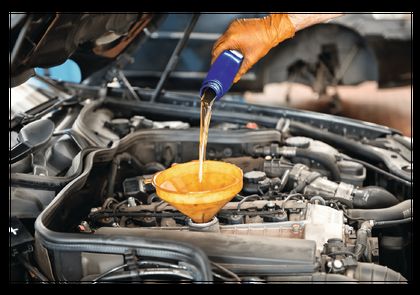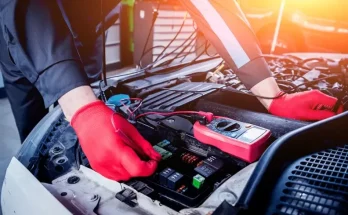Engine & Fluids: Engine Maintenance Tips to Keep You Moving
Your vehicle’s engine is its heart—responsible for generating the power that keeps you moving down the road. A big part of this care involves monitoring and maintaining the various fluids that keep everything running smoothly. In this guide, we’ll break down essential engine maintenance tips, with a focus on fluids, to help extend the life of your engine and keep you moving with confidence.
Why Engine Maintenance Matters
Ignoring engine maintenance might not cause immediate issues, but over time, it leads to reduced performance, increased fuel consumption, and even costly repairs.
A healthy engine reduces the risk of stalling, overheating, or other failures that could leave you stranded on the road.
Essential Engine Fluids and Their Roles
Understanding what each one does and how to care for it is the first step in proper engine maintenance.
1. Engine Oil
Think of engine oil as your engine’s lifeblood. It lubricates the moving parts, reduces friction, and helps carry away heat.
-
When to Change: Every 3,000 to 7,500 miles, depending on your vehicle and oil type. Check your owner’s manual for specifics.
-
Signs It Needs Changing: Dark, dirty oil or a loud engine. Also watch for the oil change light.
2. Coolant (Antifreeze)
-
When to Check: Every few months or before extreme weather conditions.
-
Signs It Needs Attention: Engine overheating, a sweet smell, or low fluid levels.
3. Transmission Fluid
This fluid lubricates the gears and keeps the transmission shifting smoothly.
-
When to Check: Every 30,000 to 60,000 miles, or as recommended.
-
When to Change: Check your owner’s manual—some newer vehicles have “lifetime” transmission fluid, but this doesn’t mean it lasts forever.
-
Signs It Needs Attention: Trouble shifting, slipping gears, or a burning smell.
4. Brake Fluid
Brake fluid helps transfer the force from your foot on the brake pedal to the brakes themselves.
-
When to Check: At every oil change.
-
When to Change: Every 2–3 years, or as recommended.
-
Signs It Needs Attention: Spongy brakes, longer stopping distance, or a brake warning light.
5. Power Steering Fluid
This fluid makes steering easy and smooth.
-
When to Check: Monthly or if steering feels stiff.
-
When to Change: Every 50,000 miles or per your owner’s manual.
-
Signs It Needs Attention: Difficulty steering or whining noises.
6. Windshield Washer Fluid
While not critical to engine function, clean windshields are vital for visibility and safety.
-
When to Check: Regularly—especially in dusty or rainy conditions.
-
When to Change: Top off as needed.
-
Signs It Needs Attention: Low spray pressure or a warning light.
Maintenance Tips to Keep Your Engine in Top Shape
1. Stick to a Maintenance Schedule
Most vehicles have a maintenance schedule in the owner’s manual. It outlines when to check and replace fluids, belts, filters, and other components.
2. Use the Right Fluids
Always use the fluid type recommended by your manufacturer.
3. Check for Leaks
A puddle under your car isn’t just annoying—it could signal a serious problem. Learn to identify fluid colors:
-
Brown or black = oil
-
Green, orange, or pink = coolant
-
Red or brown = transmission or power steering fluid
-
Clear or slightly blue = windshield washer fluid
4. Listen to Your Car
Unusual noises, smells, or warning lights are often your vehicle’s way of saying something’s wrong. Don’t ignore them.
5. Don’t Ignore the Check Engine Light
A check engine light can indicate anything from a loose gas cap to a serious engine problem. Get it checked out promptly to avoid bigger issues down the road.
6. Keep Your Engine Clean
You can wipe it down occasionally and clean off any buildup of grime or debris. Just be careful not to damage any sensors or wiring.
7. Watch Your Driving Habits
Rapid acceleration, hard braking, and carrying heavy loads all put extra stress on your engine. Smooth, steady driving is easier on your vehicle and helps maintain engine health.
When to See a Professional
If you’re uncomfortable checking or changing fluids—or if you notice major symptoms like knocking sounds, smoke, or overheating—it’s time for a mechanic.
Final Thoughts
Engine maintenance isn’t just about extending your car’s life—it’s about protecting your investment and ensuring your safety on the road. By understanding the role of key fluids and performing regular checks, you can avoid costly repairs and enjoy a smoother ride for years to come.
Taking a little time now to care for your engine will keep you moving forward—mile after mile.




